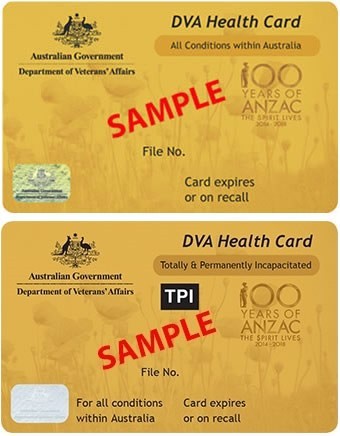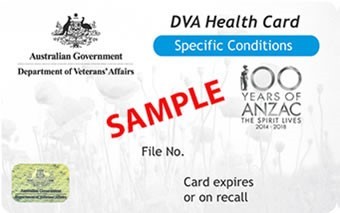19. I hold a DVA Card, can I have a Support at home Package too?
Page 19 of 21
If you hold a DVA Card you CAN also have a Support at home Package. The most important issue is that you cannot duplicate services. We have had many clients with both. Our advice is get everything you can from your DVA Card and then use your Support at Home Package for the rest of the in home care you need. Below is a list of the services and equipment DVA will pay for.
Department of Veterans’ Affairs Programs
The Department of Veterans Affairs’ (DVA) is responsible for carrying out Government policy and implementing programs to fulfil Australia’s obligations to war veterans and their dependents. DVA offers a range of programs to assist Veterans and war widows/widowers with their health and wellbeing and who wish to live independently in their own home with some assistance.
How do I confirm qualifying service?
To confirm qualifying service, you will need to complete a form based on the circumstances of your service, every application is considered on individual merit. If you are:
- A current or ex-member of the Australian Defence Force (ADF);
- A Commonwealth or Allied Veteran;
- If you served with the Armed Forces of the Republic of Vietnam;
- If you served with the Forces in Yugoslavia in the Second World War; or
- An Australian or Allied Mariner.
Programs and services available through DVA include:
Veterans’ Home Care Program (VHC)
Administered through DVA and provides a range of services for low-level home care to veterans, war widows/widowers. The aim of VHC is to assist veterans to remain independent in their own homes for as long as possible.
VHC services include:
- Domestic assistance;
- Personal care;
- Safety-related home and garden services; and
- Respite (in-home, residential, short term relief and emergency).
When a veteran, war widow/widower has increasingly complex care needs, they should be referred to the My Aged Care team for assessment for a Support at Home package. If approved, the Support at Home Package becomes the primary source of care.
Coordinated Veterans’ Care Program (CVC)
Provides ongoing, planned and coordinated primary and community care led by a G.P. with a nurse coordinator. You must be a Veteran Gold Card holder and have a chronic condition or complex care needs and are at risk of hospitalisation.
Eligibility for the Co-ordinated Veterans Care program is determined by the G.P. services offered by Support at Home Packages level 1 and 2 generally do not duplicate services provided by CVC. DVA may provide recipients of VHC and CVC with additional services such as:
- Community nursing;
- Rehabilitation aides;
- Allied health services; and
- Transport.
If these services are not being met by a Support at Home Package.
Community Nursing
DVA community nursing is offered by the DVA Community Nursing Program, to address a range of clinical and/or personal care needs in the veterans’ own home. Referral is through:
- G.P.;
- Treating doctor in a hospital;
- Hospital discharge planner;
- Nurse practitioner; or
- VHC Assessment Agency.
Allied Health
DVA funds all health services necessary to meet the clinical needs for Veteran Gold Card holders. For Veteran White Card holders, DVA will fund those services required because of their “accepted war caused or service related condition(s)”. Examples of allied health services include:
- Social work;
- Psychologist;
- Occupational therapist;
- Podiatrist;
- Physio; and
- Dietitian.
Rehabilitation Appliances Program (RAP)
Provision of free aids and appliances to minimise the impact of disabilities, maximise independence and enhance quality of life. Examples include:
- Wheel chairs;
- Shower chairs;
- Walking frames;
- Continence products;
- Over toilet chair;
- Airflow Mattress;
- Hoist;
- Sit to stand electric chair;
- Electronic lift hospital bed;
- Home oxygen; and
- Diabetic supplies.
Transport (RTS)
The Repatriation Scheme provides eligible veterans and war widows/widowers (entitled persons) assistance with transport when they attend a health provider for medical treatment. Modes of transport include:
- Private vehicle;
- Public transport;
- Community transport;
- Taxi/hire care; or
- Air travel.
DVA clients and Support at Home Packages
Veterans and war widows/widowers have the same right of access to Support at Home Packages as any other member of the community. Once approved by an ACAT as eligible, a Home Care Package becomes the primary source of care for the veteran, war widow/widower. All services can be provided by DVA, as long as duplication is avoided.
Benefits and Payments Last updated 16 October 2014
The Department of Veterans’ Affairs (DVA) provides support to current and former serving members and their families through a range of benefits (including ongoing or one off payments). For example, support may be available in the case of:
- Injury, disease or death;
- Permanent impairment;
- Incapacity for work or service;
- Needing ongoing household and attendant care;
- Needing treatment such as health care; or
- Loss of or damage to medical aids.
Veterans’ Health Cards DVA issues health cards to eligible veterans and former members of the Australian Defence Force, their widows/widowers and dependents. There are different eligibility requirements for each type of card.
The Gold Card – ‘Repatriation Health Card – For All Conditions’ gives you access to a wide range of public and private health care services, for the treatment, at the department’s expense, of all your health care conditions whether war or service related or not.

The White Card – ‘Repatriation Health Card – For Specific Conditions’ gives access to a wide range of public and private health care services for the treatment, at the department’s expense, if your disabilities and conditions accepted as war or service related.
Veterans of the Australian Defence Force may also receive treatment for the following conditions whether service related or not:
- Cancer (malignant neoplasia);
- Pulmonary tuberculosis;
- Post-traumatic stress disorder;
- Anxiety and/or depression; or
- Symptoms of unidentifiable conditions, until diagnosed, where a claim is lodged within 15 years of eligible service (being other than peacetime service). This is subject to certain additional requirements.

The Orange Card – ‘Repatriation Pharmaceutical Benefits Card’ gives access to subsidised pharmaceuticals and medicines under the Repatriation Pharmaceutical Benefits Scheme (RPBS). The Orange Card is issued to Commonwealth and Allied Veterans and Mariners who meet the eligibility criteria.
This card is for PHARMACEUTICALS ONLY and cannot be used for any medical or other health care treatment.
For any further information, please contact the Department of Veterans Affairs on 133254 or view their webpage.
The Definitive Guide to Government Funded Consumer Directed In Home Aged Care Packages
1. What is a Consumer Directed Care (CDC) in Home Care Package?
2. How many hours of support or care can I receive for my Home Care Package?
3. What can a Government Subsidised Home Care Package pay for?
4. What are the costs of a Consumer Directed Care (CDC) Home Care Package?
5. What does Consumer Directed Care (CDC) Home Care Package mean?
6. Consumers’ 9 New Rights under Consumer Directed Care (CDC)
7. How do you apply for a Government Subsidised Home Care Package?
8. Are you approved or assigned a Government Funded Home Care Package?
9. Should Self-Funded Seniors accept a Level 2 Home Care Package?
10. Should Self-Funded Seniors accept a Level 3 or 4 Home Care Package?
11. Should a Pensioner accept a Level 1 or 2 Home Care Package?
12. How do I start my Home Care Package?
13. How do I transfer my Home Care Package to Daughterly Care Community Services?
14. How do I know if the Home Care Package fees I’m being charged are fair?
15. How will Consumer Directed Care (CDC) benefit my loved one?
16. Is Consumer Directed Care (CDC) working?
17. Will Consumer Directed Care (CDC) make it easier for my loved one to stay at home?
18. What happens to the Unspent Funds in my Government Funded / Subsidised Home Care Package?
19. If I have a DVA card can I have an In Home Care Package too? Current Page
20. Can I take leave from my Home Care Package?
21. Frequently asked questions about Consumer Directed Care (CDC) Home Care Packages
Discover the secret to getting more out of your Consumer Directed Care (CDC) Home Care Package!
Do you have a question that isn’t answered here or just looking for more information? Browse our FAQs.
19. Can I take leave from my Support at Home Package?
Need more information? To know more about us, read why we started Daughterly Care and take a look at our services.
Meet the stars of our business, our in home carers and case managers and operations team.
Read unsolicited feedback from our in home care clients. We’re always thrilled to receive such kind words.
Contact us for a confidential chat about your in-home care needs or to organise your free no obligation consultation by emailing: claireg@daughterlycare.com.au or ring us on (02) 9970 7333.

